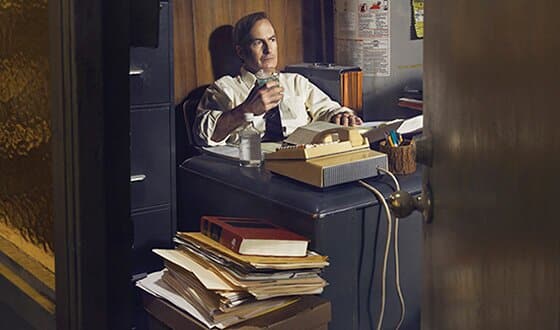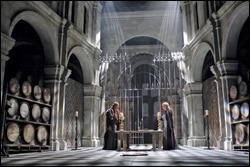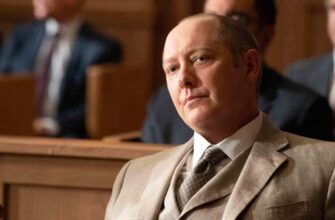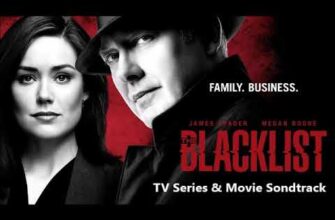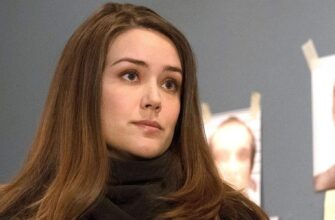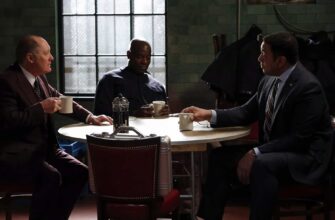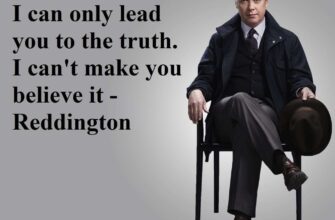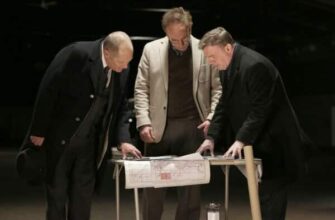Warning: Spoiler Alert
Until the new “golden age of TV” that helped inspire this website came into existence about 10-15 years ago, spinoffs were an unquestioned part of the small screen landscape. Hit it big and the network will be looking for a marginal cast member to carry their own story when the main series is done. With the high expectations at play in every situation, there’s never a middle ground situation, either incredible success (such as Frazier spinning off from Cheers and The Jeffersons spinning off from All In The Family) or, much more often, complete infamy (such as Joey spinning off from Friends, the Joanie Loves Chachi bomb late in the run of Happy Days and the AfterMASH debacle after, well, M*A*S*H).
Until now, today’s premium dramas have remained strangely apart from this element of the television landscape. Networks have allowed showrunners to end their stories in definitive fashion, not wanting to risk diminishing the brand (and the ongoing merchandising/DVD/streaming/etc. deals that truly allow shows to live forever) by risking a turd as the coda in the public’s mind. As such, it’s fun to consider some of the spinoffs that might have seen the light of day in an alternate universe governed by a bit more greed. Vic Mackey as a post-Shield vigilante trying to work his way back to his family? Yes please! How about McManus as the weird guy horrifying his officemates with tales of his days as Emerald City administrator at Oz? Eh, I’d pass on that one. The ongoing adventures of Venus Van Dam, post-Sons of Anarchy? Notwithstanding the unquestioned greatness of Walton Goggins, no thanks. The closest that we’ve seen to any of these scenarios involves the extreme similarities of Steven Van Zandt’s characters on The Sopranos and Lilyhammer – such that there is even rampant fan speculation on the Internet that the Scandinavian-based show represents Silvio’s Sopranos coma dream!
But officially, until now, we have not seen this phenomenon amidst TV’s most decorated modern dramas. And it seems a bit strange that the spinoff trend in that particular arena is starting with Breaking Bad, arguably the most acclaimed of them all. The palpable nervousness emanating from Better Call Saul co-creators Vince Gilligan and Peter Gould these days stems from their realization of the stakes involved. It seems impossible to retroactively tarnish a treasure like Breaking Bad – considering that the stench of AfterMash doesn’t really taint M*A*S*H – but given the endless regard for the original, it’s got to be a daunting thought. It’s the difference between Floyd Mayweather going into retirement with a perfect record or one staining loss. However, the creative team made the decision to put the band back together when AMC – trying to keep all of their relevance with Breaking Bad gone and the other show that put their original programming on the map, Mad Men, about to be – beckoned. They calculated that Walter White’s shady lawyer, Saul Goodman, would be able to carry his own funny and soulful series. And, one episode in, it looks like they were right.
Essentially, with the flop-sweat tale of desperate striving that was presented on both sides chronologically of the “Saul Goodman glory years,” the series is setting up to present the lean periods flanking that bell curve of success. While the program is set to overwhelmingly cover the prequel years of Saul, we open with a fascinating black-and-white tableau of him working at a mall Cinnabon, post-blue meth empire, with the strains of the super-old-timey song “Address Unknown” laying over the action. That happened to be his exact prediction of the future in the penultimate episode of Breaking Bad! Actually, he referenced a “Cinnabon in Omaha,” and based on the context clue of hearing the weatherman on TV reference Broken Bow and Hastings – both cities in Nebraska – it looks like that’s where he landed. As a mustachioed, bespectacled Saul peers nervously while performing closing duties for the night, he appears to be is approached by a dangerous-looking man – who then keeps walking to greet an apparent wife and child. So it’s clear that Saul is not just on the run from the law at this sad outpost, but also remnants of the criminal life that he left behind. Back at home, he punctuates his sad existence by fetching a highlight reel of his advertising “greatest hits” – and weeps silently in the first moment that we’ve ever seen Saul completely shorn of his trademark glibness. Bob Odenkirk brought the dramatic chops that we haven’t really had the chance to see from him before.
The rest of Episode 6.1, Uno, unfolds in 2002, in a universe that has yet to witness the man born as Jimmy McGill inhabiting the greasy skin of Saul Goodman. Jimmy is late for a court appearance because he’s practicing his audacious speech in front of the mirror in the restroom down the hall. Back in the courtroom, we see that Jimmy – in his role as a public defender – already had much of the Saul skill set, weaving an amusing tale of how being young and dumb is a universal albatross. However, the nature of what the kids were doing during their break-in – having sex with a severed corpse head in a funeral home – overwhelms his argument when the video is shown in court and the goofballs end up going to jail. And from Jimmy’s perspective, what’s even worse is that his public defender pay ended up at the rate of a singular $700 charge rather than $2,100 from three billings. It’s clear even early in the program just how bad Jimmy needs every cent that he can get and the program’s first appearance of the vaunted Mike the Cleaner from Breaking Bad features him as a droll parking lot attendant who insists that Jimmy needs to pay $3 or obtain an additional sticker on his parking pass to exit the lot. The banter between the two, as well as our knowledge of what the future holds for them, indicates that the nature of their relationship will change quickly.
Breaking Bad fans saw Saul as a master of kayfabe in his high-level maneuverings, but Better Call Saul shows these abilities in the service of a man just making it by the skin of his teeth. Jimmy amusingly pretends to be a receptionist in a phone conversation to set up a meeting with potential clients that he insists needs to be held at a diner because of “renovations to the office” – real reason: he works in a crappy closet in the back of a Chinese nail salon – and he gives them a charming version of the hard sell over lunch. His apparent lack of success crushes him, as does his lack of phone messages back at the “office” and the stack of bills that looks like it could choke him. Strangely, though, a check that he receives enrages him and he tears it to pieces.
That confetti is next seen being thrown down on the conference room table of the office of his brother Chuck’s large law firm. It seems that Chuck has been plagued by a mental/psychological/physical condition for one year that has left him unable to fulfill his duties at the company and head cheese Howard Hamlin is keen to throw pocket change his way to forestall any calls for a buyout. And a buyout is exactly what Jimmy is demanding, to no avail. During a smoke break with the firm’s Kim Wexler, who is later identified as some kind of “friend” of Jimmy, she rebuffs his plea for help with Howard – who, suspecting that Jimmy is not voicing Chuck’s wishes, approaches him directly to provide money instead of trying to work through Jimmy anymore. During a visit with Chuck, highlighted by use of lantern light as per Chuck’s needs, the older brother declares strongly to Jimmy that he will beat his condition and return to the firm. Jimmy is clearly torn, not wanting to crush his brother by indicating a lack of faith, but he firmly gets across the point that both men are nearing financial peril because of their circumstances. Chuck is unwavering and even tries to get across Howard’s request that Jimmy cease using the McGill name because of so-called brand confusion with Howard and the successful firm that includes his name in the title. After leaving his brother’s home, Jimmy swears that he’s going to get the better of Howard.
What follows is an elaborate plan that causes we the viewers to wonder about the connection to Howard – although the wait will probably not be very long with Episode 1.2 airing a scant 24 hours after the pilot. Jimmy tracks down a couple of small-time skateboarding scammers who previously tried to fool him into thinking that he ran one of them down and he proposes that they work their act in his employment. He has a very specific target: Betsy Kettleman (she and her husband were the would-be clients that Jimmy earlier attempted to sign but lost to Hamlin Hamlin & McGill). The plan is for one of the skaters to spring in front of the car and for the other to quickly summon Jimmy to the scene. The accident works as planned, but in a twist that none of the conspirators saw coming, the car sped away. Enthusiastic about the prospects for squeezing the mark with a hit-and-run threat, the skaters track her down at home – but instead find an older Hispanic woman claiming to have a tenuous grasp of English behind the wheel. So it was the wrong car, to boot! They follow her inside. Momentarily, Jimmy pulls up and begins knocking on the front door asking to be let in. As the door opens, we quickly see a gun being put to Jimmy’s head and then the shocking image of who is holding it: Tuco Salamanca, one of the greatest psychopaths in the history of Breaking Bad! Now that’s how you end a pilot, kids.
One episode in and the commercial testimonial that onetime client Badger provided for Saul is already ringing true: “Saul Goodman. IT’S ALL GOOD … MAN!”
